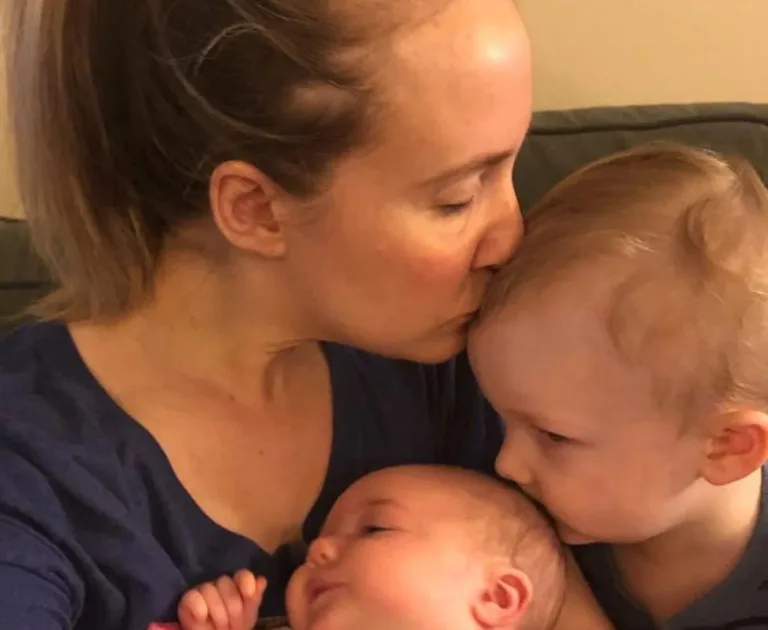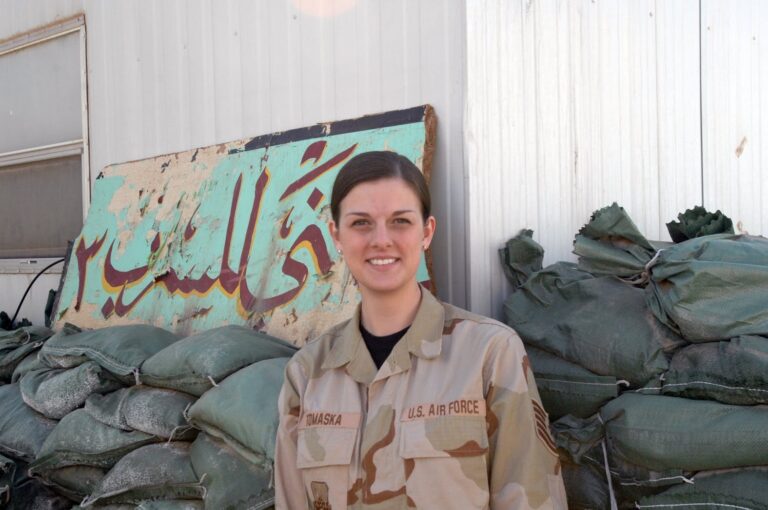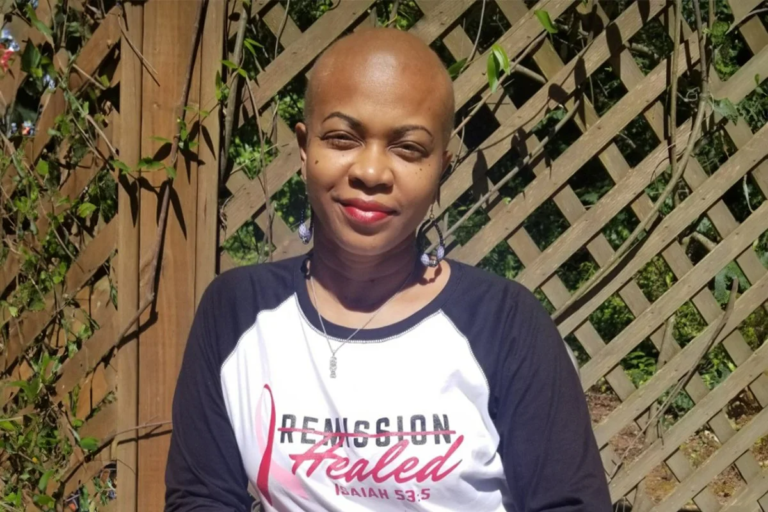As told to Nicole Audrey Spector
For years before commissioning, I knew I wanted to serve in the military. It felt like an obvious choice because I come from a military family. Joining was a way of continuing family tradition in a way that I knew would be fulfilling.
After college, I was commissioned as a Finance Army Officer. I started as a 2LT and was promoted to 1LT after 18 months in service. Once I hit four years, I was promoted to CPT.
I’m a math whiz and most of my work in the military revolved around handling financial transactions.
Though a lot of my work was clerical, I still had to go through the intense physical workouts that everyone else did. We had a mandatory hour-and-a-half workout every morning, Monday through Friday.
I loved the financial aspects of my job, but Army duties like setting up the range were very stressful. It really was too much — especially since I was also in school at the time, getting my master’s in accounting. Most nights I was up studying and would barely get any sleep.
And this is when it all started: the symptoms.
I noticed inflammation in my fingers, particularly in the joint areas. As time went on, the inflammation spread through my whole arm. Then I started experiencing what felt like arthritis throughout my body. Everyday life activities became painful. Even getting out of bed and putting my shoes on was a struggle. My back pain was unbearable.
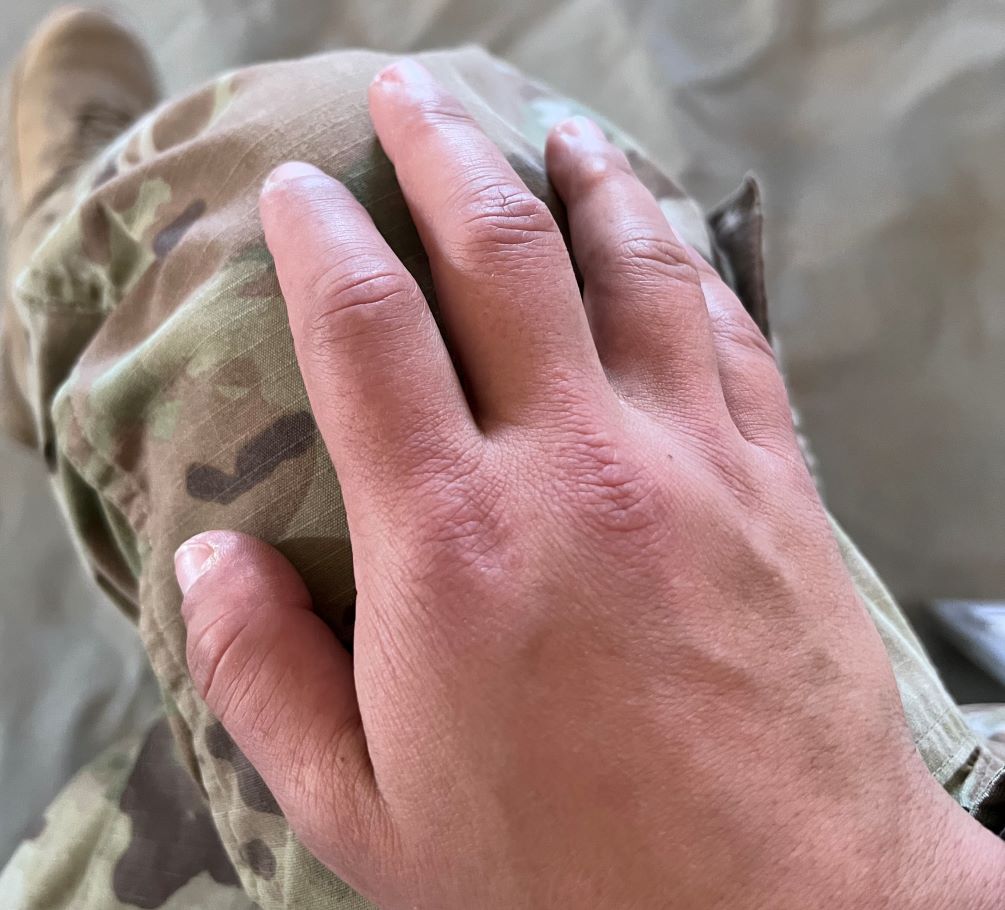
I went to the sick call numerous times to get answers and relief. The care I received was laughably bad. The staff there seemed clueless. They would give me ice and pain meds. When my entire arm was inflamed, they took X-rays (found nothing other than inflammation) and put my arm in a cast. The cast alone, which was on my dominant arm, made life instantly more difficult.
Meanwhile, the back pain just kept worsening. But I wasn’t spared from the rigorous physical workouts. One day at the range, I was trying to shoot a rifle, which was a mandatory part of training. The pain in my fingers was so bad the rifle kept recoiling in my face. Then my face would get inflamed.
Though I knew I was in bad shape, I wasn’t necessarily aware of just how sick I was. My civilian friends who would visit had to tell me. They noticed I was breathing rapidly and seemed terribly tired. “Take it easy,” they’d say.
Well, there is no taking it easy in the Army.
Eventually, I got blisters in my mouth and could barely eat. I lost a ton of weight. Then, one day, I coughed up blood. I went to the ER, was briefly examined and told nothing looked wrong.
I felt stuck. So many people depended on me to do my job. I didn’t want to leave them hanging. But I was also deathly ill. My mother came to visit me and was horrified at what she saw. She took me to the ER every single day until a doctor paid real attention to me.
The doctor noticed a butterfly rash on my face and from there, connected the dots. They ran a bunch of tests, which came back indicating that I have lupus. I wasn’t unfamiliar with the disease. I’d actually been tested for it just several months prior but was told I didn’t have it.
When I was finally diagnosed, I was literally fighting for my life. I was sent to a hospital to be intubated because my lungs were so filled with blood that I couldn’t breathe on my own. I was in the ICU, intubated, for two weeks. My family was there with me every step of the way, advocating for me.
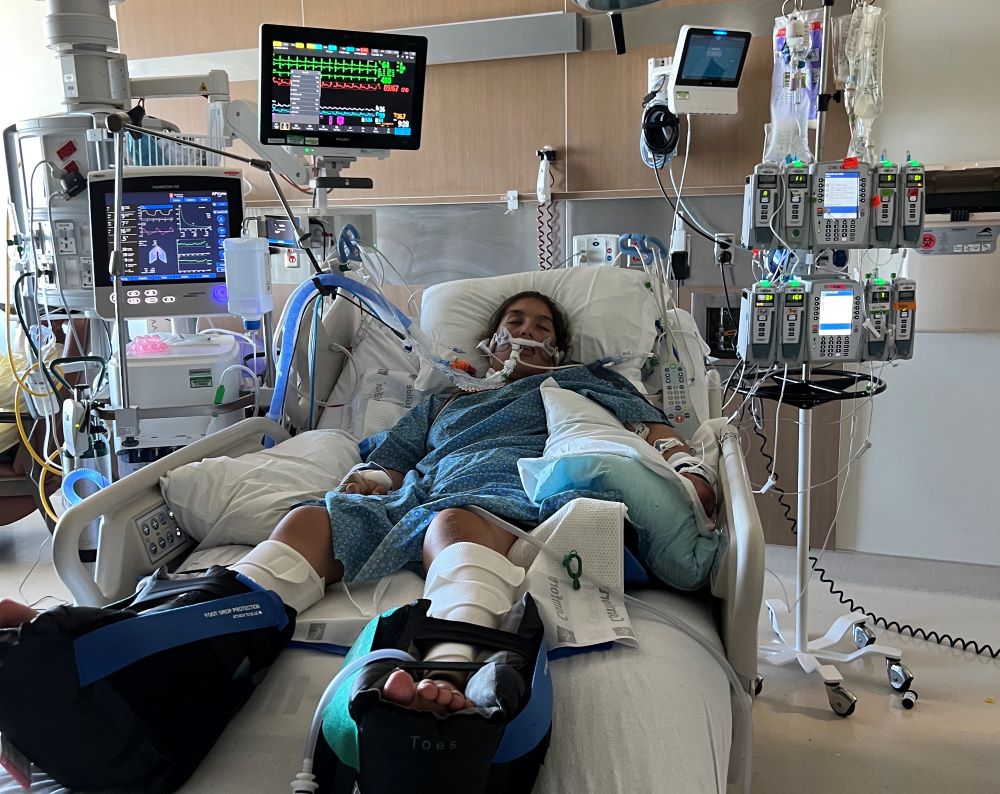
Though lupus is a devastating diagnosis, I was relieved to at last know what was going on. And though there’s no cure for lupus, there are effective ways to treat the symptoms that come with it. This gave me hope.
I started getting regular infusions to treat the symptoms of lupus. The infusions depressed me because they caused me to lose some of my hair. As a woman who loves her hair, this really hurt my self esteem. I also had to be on oxygen for six months following my ICU stay.
By then, it was obvious that I couldn’t continue my career in the military. Though there were cons to being in the military, I loved my work. I was so depressed knowing I had to leave that part of my life behind. It felt like my whole world crashed. Hopes and dreams of being deployed and serving my country were destroyed.
I was sent to the Soldier Recovery Unit (SRU), and I determined it was probably best for my health to leave the military. SRU helped me transition out of the military.
I started going to therapy, where I worked hard to figure out what I wanted to do with my life now that the military was no longer an option. Eventually, I saw the light. I would continue with my accounting career and work in finance roles. Maybe I’d have a family, too.
A fulfilling life began to seem possible for me.
Today I (of course) still have lupus, but I take medications and see a rheumatologist every three months to control my symptoms. I also take measures to prevent symptoms, including reducing stress, eating healthy and wearing tons of sunscreen.
I recently started a new job that I love. I love it so much more than the Army, which feels crazy to say! Sometimes, I think maybe this all happened for a reason, that God was telling me that military life wasn’t the right path for me.
It is my wish that other women, regardless of whether they’re in the military, know that they are in control of their health. You have every right to be persistent to get the medical help you need, and you shouldn’t feel pressured to back down.
This educational resource was created with support from AstraZeneca.
Have a Real Women, Real Stories of your own you want to share? Let us know.
Our Real Women, Real Stories are the authentic experiences of real-life women. The views, opinions and experiences shared in these stories are not endorsed by HealthyWomen and do not necessarily reflect the official policy or position of HealthyWomen.













